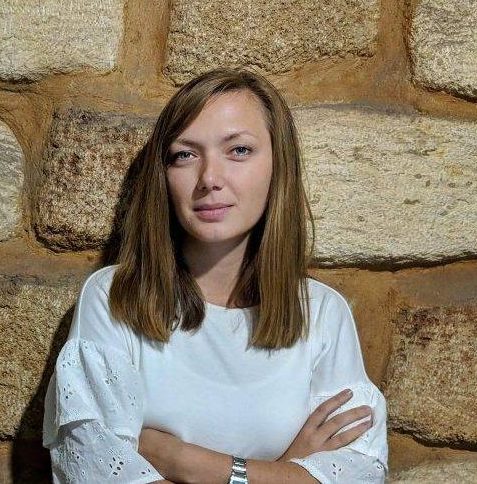Israeli Prime Minister Yair Lapid’s office announced on Wednesday, August 19, the full resumption of diplomatic ties with Turkey and reappointment of respective ambassadors after more than ten years of discord. Yair Lapid explained in a statement that the decision to upgrade the level of ties with Ankara to full diplomatic relations would contribute to deepening their bilateral ties and strengthening regional stability. The decision came after Lapid’s visit to Ankara, his meetings with Turkish Foreign Minister Mevlut Cavusoglu, and his conversation with President Recep Tayyip Erdogan.
The history of an uneasy relationship between Turkey and Israel dates back to 2008-2009, when Israel carried out a military operation in Gaza that killed 1400 Palestinians. The relations further deteriorated in 2010 following the Israeli assault on the Turkish “Mavi Marmara” aid ship carrying humanitarian aid to the Palestinian enclave of Gaza, under Israeli blockade and controlled by Hamas. Nine Turkish nationals lost their lives in the incident. Later, in May 2018, Turkey and Israel expelled respective ambassadors after an Israeli crackdown on Palestinian demonstrators during the Great March of Return protests on the Gaza border in response to the US Embassy opening in Jerusalem.
The restoration of full diplomatic ties between Ankara and Tel Aviv came after the series of moves and intense talks between Israeli and Turkish officials that had been going on for several months. When Netanyahu was ousted as the Israeli Prime Minister in June last year, that did open a way for better relations between Turkey and Israel. In late November 2021, President Erdogan spoke with then-Israeli Prime Minister Naftali Bennett for the first time since 2013. In March this year, Isaac Herzog became the first Israeli president to visit Turkey in 14 years, calling the visit the beginning of a new era. In May and June this year, the two countries’ foreign ministers paid long-anticipated visits to each other’s countries. Following the meetings, the countries signed the aviation agreement and launched unprecedented cooperation between the Israeli and Turkish intelligence services in response to the revelation of terrorist threats from Iran and targeting Israeli tourists in Turkey.
Both countries have enough reasons to normalise their relationship. Turkish president Erdogan understood that he had to adjust Turkey’s geopolitical posture by making it less confrontational. Such an approach proved largely counterproductive in recent years resulting in Turkey’s regional isolation. Less than a year to 2023 legislative and presidential elections in Turkey, Erdogan is facing internal challenges, including an economic crisis and declined popularity of the AKP party. Turkey’s normalisation of ties with Israel comes amid broad efforts to reset relations with a wide range of former rivals across the Middle East, including the UAE, Saudi Arabia and Egypt. With an inflation rate of more than 70%, Ankara seeks to attract investment from regional countries and Russia. The restoration of diplomatic ties between Turkey and Israel also has a security dimension. Ankara understands the balance of power in the Middle East and is aware of Israel’s power and influence. From Turkey’s perspective, having Israeli support in Syria and the eastern Mediterranean will benefit Ankara. In return, Turkey is seen by Tel Aviv as a regional player that could counterbalance Iran and provide Tel Aviv with regional strategic support. Particularly at a time when world powers seek to restore Iran’s nuclear deal.
There is much potential for the two countries to work together. In economic terms, Turkey has the biggest and the most diversified economy in the Middle East, and Israel has become a high-tech powerhouse. Tourism is also likely to flourish. There is also a history of military and intelligence cooperation between the Israeli security establishment and the Turkish army. Both countries are very concerned about Islamic extremists and face common security challenges. For instance, both countries supplied military resources to Baku during events in Nagorno-Karabakh in 2020.
However, according to officials of both countries, the prospect of cooperation in the energy sector is the main incentive to repair their relationship. Erdogan aspires to turn Turkey into the centre of gas marketing between the Middle East and Europe. Since January 2022, Israel and Turkey have declared their readiness to cooperate on a gas pipeline project to bring Israeli gas to Turkey through a pipeline in the eastern Mediterranean to export it to Europe. The latter seeks to diversify from Russian gas supplies in the context of the Ukraine war.
Meanwhile, Turkey has been a vocal supporter of Palestinian rights for a very long time. However, Turkish foreign minister Mevlüt Cavusoglu, when announcing the new move in Turkey-Israel relations, assured that “Turkey will not abandon the Palestinian cause and will continue to defend the rights of Palestine, Jerusalem and Gaza through its ambassador in Tel Aviv. Turkey does not recognise Jerusalem as Israel’s capital, and its embassy is in Tel Aviv. The latest news shows that Turkey is a rational actor that acts upon its interests rather than ideological standpoints.

